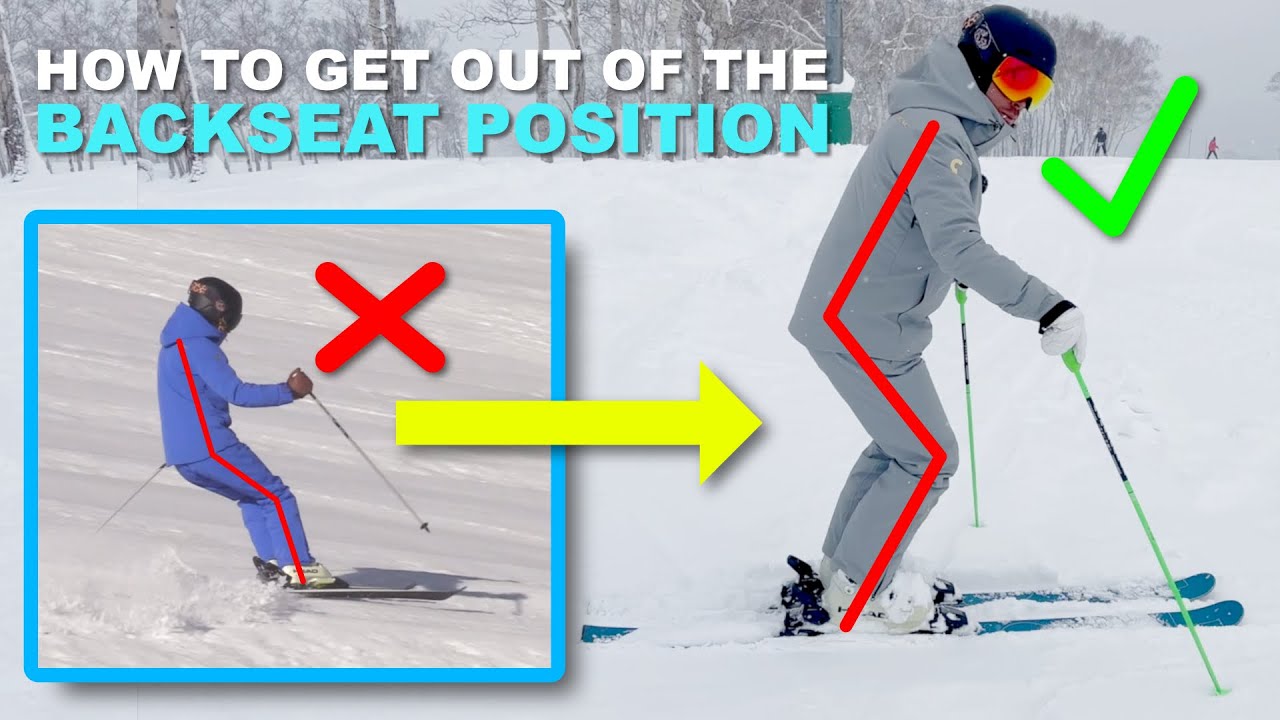
Alpine skiing is one of the few sports that have been a part of every single Winter Olympics. It's a sport that requires fearless need for speed and technical skill, and it can also be the most expensive event to compete in.
Despite all its challenges, skiing continues to be a popular activity among all ages. Alpine skiing requires patience and practice, unlike freestyle skiing which is more about acrobatics mid-air.
There are many sports that athletes can compete at, both locally and internationally. However it is best known for its participation on the Winter Olympic Games. Six olympic alpine ski events are offered: downhill, giant slalom and super-G. There is also a mixed team parallel slalom.
Downhill
This is the longest and hardest of all alpine ski events. The vertical drop for men is 800-1100m, and for women it's 450-800m. Skiers can only go down one course so they have to make it as fast as possible.
Slalom
The shortest and most technical of all the alpine skiing events, slalom has gates that are spaced closely together. This allows you to make precise turns and race fast.

Each gate must be passed by competitors within the time limit or they will be disqualified. The slalom has two runs and eliminations will be based on the times.
Giant slalom
Similar to slalom but with a longer distance, giant (or "super-") slalom requires that skiers pass through each gate in the given time. This event has also been contested at every single Winter Olympics since it was added to the program in 1936.
Super-G
Super-G, another speed event is a hybrid between downhill skiing and slalom. The gates are meant to create turns that are more similar to those in slalom. However, athletes can't miss any of them.
Combinable
This is the first alpine skiing event added to the Olympics. It consists of both a downhill run and a slalom race. The winner is determined by the lowest aggregate time for both runs.
FIS was founded by the FIS in 1924. They govern the sport worldwide. It also acts as an umbrella organization for crosscountry skiing, ski jumping, snowboarding, and other related activities.
Its 136 members compete in the World Championships.

The Olympics saw an increase in alpine skiing events. However, it still remains an Alpine-dominated sport. Austria is the country with the most gold and total medals.
There are 138 national federations competing in alpine skiing at World Championships. Many of these federations have strong programs. The top-ranked countries in the world, including those who have won gold and silver medals at the Olympics, are France, Switzerland, Norway, Russia, Austria, Italy, and Canada.
The United States has a strong presence on the Olympics. American Mikaela Schiffrin won her first medal at these games in 2014. She's currently ranked number two in the world and has won four World Cup races in alpine skiing. Petra Vlhova from Slovakia, who has competed with Shiffrin for many years and is considered the best slalom skiing in the world, will likely join her in Beijing.
FAQ
Should I purchase travel insurance?
Travel insurance is important if your plans include adventure travel. It is important to have insurance that covers all types of adventure sports.
You should make sure you have insurance if you ski. Also, you should consider getting insurance for theft, loss, or damage.
Also, you should consider purchasing cancellation insurance. This means that you can cancel your holiday without paying any penalties.
Additionally, it is a good idea to ask for emergency evacuation coverage. This includes evacuation from the mountain in the case of an earthquake or other natural disaster.
How long does it take to fly between two countries?
The time taken to fly varies depending on the distance between the airports and the weather conditions.
Average flight time is 3 hours.
The actual flying time depends on many factors like the airline, aircraft type and airport delays.
These are the things that you must remember when traveling.
When you travel, you'll find yourself in situations with little time to make decisions. You should be ready to improvise.
You might be stuck somewhere for hours, days, weeks, or even months. If you have a plan, you'll be able to provide food, water, shelter and a place to rest. You may need to improvise if you don't plan ahead.
In these instances, you may need to rely only on what you are good at. You will have to rely on your instincts and experience to make quick decisions.
Sometimes, however, you will not have any other choice. It could happen that you are stranded without cell phone coverage, run out of gas, or have been robbed. You'll need to adapt quickly to these situations.
It is important to remain calm, keep your eyes on the prize and be decisive. Don't panic. Instead, keep your eyes on the things you can control.
If you find yourself lost in the woods you can choose which way to go. If you feel hungry, you have the option to eat berries or mushroom. You can drink rainwater, or melt snow if your thirst is great.
If you are tired, you can take a break. It's okay to bundle up if it is cold. You can wear a sweater if it's cold. Whatever your choice, staying positive will help you feel better.
Where can you buy the cheapest airline tickets
If you want to find the cheapest airfare, then you might consider looking at airlines like Jetstar, Virgin Australia, AirAsia, Tigerair, Malaysia Airlines, Singapore Airlines, Thai Airways International, Korean Air, Philippine Airlines, China Southern Airlines, etc.
If you search online, you will see that some of these airlines give away cheap flight tickets as a promotion.
What documents should I have with me while traveling?
Keep copies of important documents at home for easy access while on the road. You may also want to consider keeping copies of your passport, driver's license, and other official identification cards and any credit card information you might need if you plan to use an ATM machine.
It's always a good idea to carry a photocopy of your passport with you so it can be used as proof of identity if needed.
Include copies of your reservation and itinerary. These will help you to remember where you are and what you want to see.
You should also keep a copy your hotel reservation and flight ticket details. You'll be able contact someone back home in case you need them.
You should never leave valuables behind. Keep your valuables safe by storing them in a money belt or inside your luggage.
Check your bag before you go to prevent losing expensive items.
Keep in mind: It is safer to keep it simple than to plan everything.
Relax and enjoy your trip!
Statistics
- Case in point: the private island of Ilha Caldeira, less than seven miles off the coast as part of the Primeiras and Segundas Archipelago, is located within the marine-protected area with 20 percent of the country's intact living coral. (travelandleisure.com)
- No Checked Bags: No Alcoholic beverages with more than 70% alcohol (over 140 proof), including grain alcohol and 151 proof rum. (tsa.gov)
- Alcoholic beverages with more than 24% but not more than 70% alcohol are limited in checked bags to 5 liters (1.3 gallons) per passenger and must be in unopened retail packaging. (tsa.gov)
- According to Maori legends, this park holds 14 fjords that were all carved by a giant stonemason with an adze. (busytourist.com)
- That's an 18% jump from 2019, the previous record year. (travelandleisure.com)
External Links
How To
How to travel inexpensively
Travel is a very popular activity. But traveling can be costly. It is very expensive to travel because of the cost of hotels, flights, rental cars, transportation, meals, and so on. Even worse if you have children. How can we make traveling more affordable?
We can start by looking at ways to reduce costs. If you plan your trip in advance, you might get discounts on airfare, hotel room, rental cars, and other services. Budget hotels can be a great way to save money. A hostel offers basic accommodation for $20 per night if you don’t want to spend too little. You can also use Airbnb to rent out a room in someone’s house by taking public transport.
It is worth spending a little more to avoid additional fees. To avoid paying extra fees, consider spending a little more if you have to use Wi-Fi. You don't need to worry about roaming fees. For a cut on cost, you can order pizza or pasta for outside dining.
You could also consider sharing the expenses with others. You could ask your friends and family to split the bill. You might also be able to work together to book tickets. Sharing expenses helps you save money and reduces stress.
If you still can't afford to travel, then remember that you can always go hiking or camping. These activities are usually free. You just need to pack supplies such as water, snacks, sunscreen, insect repellent, a first aid kit, a flashlight, a tent, a sleeping bag, etc.
There are many options to make travel affordable. Think creatively, and you will come up with unique ideas!